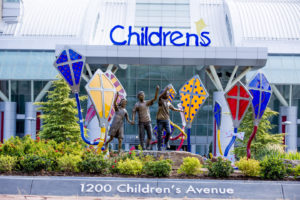Harvard Medical School on the defensive after hazy course description, statement conflates radical gender ideology with infant sex development disorders
Harvard Medical School is facing criticism for hosting classes on the treatment of “gender and sexual minority” patients, including “infants” and “babies.”
The College Fix reports…

Harvard Medical School is facing criticism for hosting classes on the treatment of “gender and sexual minority” patients, including “infants” and “babies.”
The College Fix reports the class offered by an LGBT activist “will focus on serving gender and sexual minority people across the lifespan, from infants to older adults.”
The course description said that the courses are being offered in conjunction with the gay advocacy group The Fenway Institute, which was founded “to address the specific health needs of sexual and gender minorities (SGM) and people affected by HIV.”
While Harvard ignored requests from the College Fix and Fox News about the course, they did issue a statement condemning the reports’ “misunderstandings and inaccuracies.”
“In this context, care for infants refers specifically to physical variations in sex development that arise in utero and are present at birth,” said the Harvard statement. “These include chromosomal, gonadal, and anatomical variations, all of which are relevant to medical care and treatment to ensure healthy development.”
Harvard said that its course was based on recommendations of the Association of American Medical Colleges regarding “health needs of patients who are LGBTQIA+, gender-nonconforming, or born with differences in sex development.”
What Harvard omitted to mention, however, is that in utero sexual development disorders (DSD) are completely different than LGBTQ choices.
“DSD refers to a physical situation that begins before birth in which the reproductive/genital system does not develop as expected for a typical boy or girl. Transgender describes the situation when someone identifies themselves as (feels that they are) a gender not suggested by their bodily sex,” said dsdfamilies.org. “Very rarely, children or young adults with a DSD may feel that they are not the sex they have been told they are.”
Harvard itself even admits that there are differences between sexual development, gender identity and sexual orientation.
The NIH estimates that 1 out of every 5,000 lives births has DSD, which means there are about 700 cases per year. The most common cause are adrenal disorders which can be treated easily with medication.
The most severe cases of these adrenal disorders are also the most rare and are usually detected and treated at birth. The milder cases may be detected later in life or not at all because there are no obvious symptoms.
The real reason why the treatment regimen includes DSD infants is found in the “I” of “LGBTQIA+,” which Harvard insists on using.
“I” stands for “intersex,” which is how the LGBTQ community has defined people with DSD.
The LGBTQ community has hijacked DSD into “intersex” to buttress “the biological and scientific legitimacy for their fragile ideology,” said one DSD sufferer, who opposes the conflation of her illness with sexual identity and orientation for political purposes.
The Lion asked Harvard to clarify why DSD is included in medical classes that seem to be targeted at the LGBTQ community, asking, “Are those cases and treatments the same?”
Harvard’s Dennis Nealon, the associate director of media relations, responded within 30 minutes.
But he didn’t have answers for The Lion, just a lot of questions.
“What is your main focus or angle for the article? What is the news here? In other words, why are you writing about this now? Thank you,” Nealon wrote.
The Lion responded by asking why Harvard is lumping DSD cases with LGBTQ treatment, and asking again, “Are treatments the same?”
The Lion then added, “Is it fair to the DSD community, which requires a different level of treatment?”
Harvard has yet to respond.



